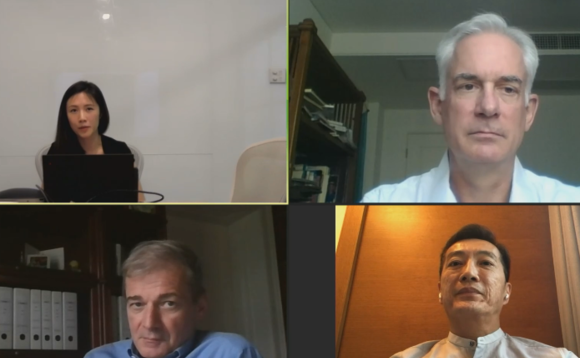
Healthcare investors warn Asia unprepared for winter - AVCJ Forum

Private equity professionals focusing on healthcare told the AVCJ Southeast Asia Virtual Forum that COVID-19’s full impact has yet to be understood. The private and public sectors will need to work together to see out a difficult year.
A key concern is how the onset of winter could worsen the pandemic. Hopes rest on a potential vaccine, and there has been some progress on that front, but a final solution is expected to take more than a year.
In the meantime, Jeff Staples, COO of Beijing-based healthcare platform United Family Healthcare, warned that governments and companies around the world must be ready to do a lot more.
Not only will they need to share the financial burden for vaccine research and subsidize the final product, they must actively look into public-private partnership opportunities in areas including insurance coverage and service delivery. It will require multilateral dialogue and philanthropic measures by companies and foundations alike.
"When this winter season hits, a lot of the issues around insurance, vaccines, and manufacturing to make the vaccines will be compounded," Staples said. "I think you're going to see a lot more nationalism coming up where governments are going to hoard vaccines, leaving places like Southeast Asia especially vulnerable."
The lack of preparation by the global medical health community can also be blamed on the fact that it has historically been difficult to incentivise companies to invest in antiviral medicine efforts. Instead, the focus has been on non-communicable diseases like diabetes or cancer that promise recurring revenues and do not have a cure in sight.
"Governments probably need to realize there is a need for a business model in infectious disease, a commercial business model that actually works," added Helmut Schuehsler, CEO of TVM Capital Healthcare. "We've seen it in antibacterials where lots of companies went bust even when the need for novel antibiotics was rising exponentially."
Meanwhile, private equity investors know they can play their part by looking at investment opportunities created by the wave of digitization forced upon them as a result of social distancing measures. A drastic fall in customer footfalls for many companies providing primary care also suggests impending consolidation, as they will require additional financial support.
Start-ups can play a role in digitizing healthcare delivery and medical manufacturing. Remote consultations, for example, can help ensure hospitals and clinics are not overburdened later in the year if the pandemic sees a resurgence. Meanwhile, the spread of wearable medical devices in the long-term should generate large data sets that can greatly improve medical outcomes.
However, Staples said that while telemedicine works for some types of medical processes, it does not work when physical inspection or diagnostic tests are required. It's also hard to monetize.
Digitizing primary care networks, in particular, is expected to help patients living in remote areas, but regulatory involvement is necessary. Thankfully, attitudes towards industry digitalization have changed across the world in recent months.
There could be a trend towards deglobalization in healthcare manufacturing as well.
"I do believe that the real-time management of supply chain has proven not to be resilient in this crisis," said TVM's Schuehsler. "In our own portfolio, the companies that manufacture have seen quite dramatic declines in revenues even if there was heavy demand because they just couldn't get the materials as everything was organized around reducing and minimizing costs."
At the same time, healthcare investors with stakes in biotech companies have seen valuations soar, but the bubble may not be sustainable, warned James Huang, a managing partner at Panacea Ventures. Companies are being advised to tap capital markets to bolster their cash reserves, but the coming year is likely to be challenging as vaccines or the development of promising drugs cannot be accelerated to a two-year timeframe.
Latest News
Asian GPs slow implementation of ESG policies - survey
Asia-based private equity firms are assigning more dedicated resources to environment, social, and governance (ESG) programmes, but policy changes have slowed in the past 12 months, in part due to concerns raised internally and by LPs, according to a...
Singapore fintech start-up LXA gets $10m seed round
New Enterprise Associates (NEA) has led a USD 10m seed round for Singapore’s LXA, a financial technology start-up launched by a former Asia senior executive at The Blackstone Group.
India's InCred announces $60m round, claims unicorn status
Indian non-bank lender InCred Financial Services said it has received INR 5bn (USD 60m) at a valuation of at least USD 1bn from unnamed investors including “a global private equity fund.”
Insight leads $50m round for Australia's Roller
Insight Partners has led a USD 50m round for Australia’s Roller, a venue management software provider specializing in family fun parks.





